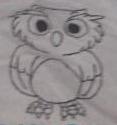The thing that stood out to me gearing up to our next discussion of digital humanities was the idea of data in connection to historical methodology and research practices. Several of the articles advocated for using data to rethink how we think about history. It’s a great idea, but a little hard to wrap your head around when you’ve been trained differently. But I think that’s the point — we can use the digital age to rethink how we think about history and how we ask, answer, and present historical questions.
For the last couple of centuries, historians have thought about history linear and chronologically, but the digital proves that it doesn’t have to be presented that way. Museums, it is pointed out, already do this by trying to limit the amount of linear direction they do so that the visitor is in control and the digital operates in the same way. The Differences Slavery Made: A Close Analysis of Two American Communities for example has several options on how to approach the answer and does not insist on a linear direction; the evidence and points of analysis are linked and connected but not forced on the audience.
As was presented in Writing History in the Digital Age, data can be used for more than just research practices. It can be used by historians to help frame the research questions themselves – how we think about and discover history. The use of data in framing the questions to be answered begs an explanation of methods; indeed, some advance the idea of methodological transparency to explain complex data methods, experimenting publicly with these ideas and making them accessible. Because digital humanities and history isn’t just rethinking the methods, data and questions – it’s rethinking the audience and presentation as well.
Writing History in the Digital Age <http://writinghistory.trincoll.edu>.
The Journal of American History, “Interchange: The Promise of Digital History,” (2008) 95 (2): 452-491.
The Differences Slavery Made: A Close Analysis of Two American Communities, <http://www2.vcdh.virginia.edu/AHR/>.
